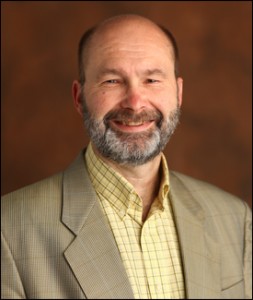 The following is a special contribution to this blog from Douglas H. Fisher, Director of the Vanderbilt Institute for Digital Learning, and Associate Professor of Computer Science and Computer Engineering at Vanderbilt University. Doug and Armando Fox of U.C. Berkeley co-chaired the Workshop on Multidisciplinary Research for Online Education last year, and recently completed the report of that workshop.
The following is a special contribution to this blog from Douglas H. Fisher, Director of the Vanderbilt Institute for Digital Learning, and Associate Professor of Computer Science and Computer Engineering at Vanderbilt University. Doug and Armando Fox of U.C. Berkeley co-chaired the Workshop on Multidisciplinary Research for Online Education last year, and recently completed the report of that workshop.
In February 2013 the Computing Community Consortium (CCC) sponsored the Workshop on Multidisciplinary Research for Online Education (MROE). This visioning activity explored the research opportunities at the intersection of the learning sciences, and the many areas of computing, to include human-computer interactions, social computing, artificial intelligence, machine learning, and modeling and simulation.
The workshop was motivated and informed by high profile activities in massive, open, online education (MOOE). Point values of “massive” and “open” are extreme values that make explicit, in ways not fully appreciated previously, variability along multiple dimensions of scale and openness.
The report for MROE has been recently completed and is online. It summarizes the workshop activities and format, and synthesizes across these activities, elaborating on 4 recurring themes:
- Next Generation MOOCs and Beyond MOOCs
- Evolving Roles and Support for Instructors
- Characteristics of Online and Physical Modalities
- Physical and Virtual Community
From the report:
Some of the particularly novel insights growing out of the workshop were attention to instructor support, instructor modeling, and instructional communities, particularly those that crossed institutional boundaries. Training and supporting teachers in new tools, skills, and domain knowledge further amplifies the effects of online education. To adapt another, like-minded expression—if you teach a teacher, you teach a village—at least this is a hypothesis that should be expanded and evaluated. Attention to issues of community generally, such as changing roles and managing discourse at large scale, were foci of the workshop.
While workshop participants were keenly interested in and discussed STEM higher education, other relatively unique discussions at MROE were on technological and social concerns regarding (a) possibly underserved populations (e.g., K-12, retired, disabled), (b) underserved disciplines (e.g., humanities, arts), and (c) long-term cultural influences of, and (d) other broader impacts of massive open online education.
While the report itself, which is in both print and online forms, is not subject to change, an online addendum is also available that will change and grow. The rapidly changing character of MOOE motivates this online addendum, and it will be updated periodically, ideally with input from the computing-research community.
Additions to the addendum will include new venues for reporting scholarship on MOOE. One example, albeit a resource that we were able to capture in the MROE report itself, is the First Annual ACM Conference on Learning at Scale, which kicks off today, March 4, 2014 in Atlanta, GA, USA. “This conference … was created by ACM as a new scholarly venue and key focal point for the review and presentation of the highest quality research on how learning and teaching can change and improve when done at scale.” The ACM conference is co-located with the Annual Technical Symposium of the ACM Special Interest Group on Computer Science Education (SIGCSE 2014).










Trackbacks /
Pingbacks